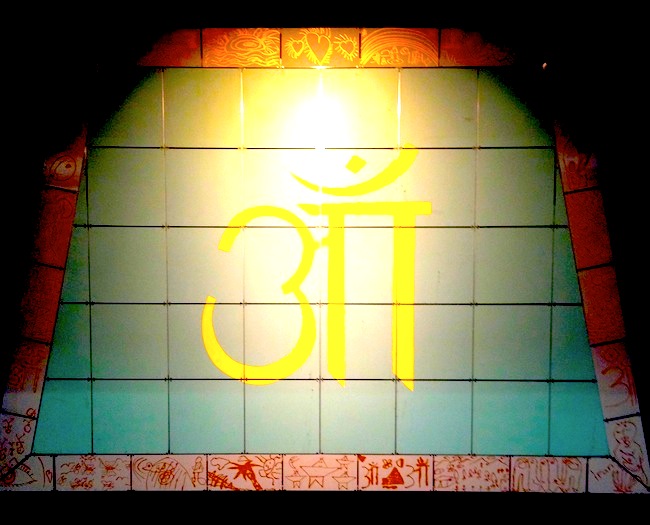Climate Zen: On Suffering in the UN Climate Talks
As the Adopt a Negotiator team arrived in Bonn for the start of the Climate Negotiations yesterday, greeting us and negotiators at the Main Station were murals depicting a mediative being and a version of the “Om” mantra, sacred to a few of the religions and philosophies you’ll find represented amongst the parties and observers at the UNFCCC.
On the face of it, it may seem out of step to relate what is considered a universal mantra of truth to the UN Climate talks, particularly given some of the political manoeuvring and disputes during the first hour of the first session of talks yesterday, and over the past 20 years.
Though it could be embracing universal truths that is what is needed to help bring parties towards an equitable and ambitious climate agreement in 2015. Thich Nhat Hanh, the renowned Vietnamese Buddhist monk believes the reason most people are not responding to the threat of global warming, despite overwhelming scientific evidence, is that they are unable to save themselves from their own personal suffering, never mind worry about the plight of Mother Earth.
These patterns do in fact emerge in various forms during the climate talks. At a side event yesterday assessing the Doha Outcomes, the Philippines Climate Change Commissioner, Yeb Sano, quoted author Isaac Asimov, saying ”One of saddest aspects of life is that science gathers knowledge faster than society gathers wisdom.”
In an effort to consolidate these slightly different view points, produce an agreed statement through compromise, and bring it under the convention, we could perhaps propose that within the UNFCCC, “Science gathers technological knowledge faster than we are able to save ourselves from personal suffering.” Not surprisingly, this wasn’t on the agenda of SBSTA’s research dialogue today, which covered emerging scientific findings in relation to ecosystems, GHG emissions, regional temperature time-lines, sea level rise predictions, as well as details of the upcoming IPCC Fifth Assessment Report, amongst others.
From a certain perspective, the statements and submissions by parties and observers, are statements of suffering; Whether an existential suffering in Civil Society organisations and AOSIS whose countries could face the prospect of extinction; Suffering in the process of breaking from a deep attachment to a hydrocarbon way of life, as the case of Saudi Arabia; US suffering in inflicting pain on others due to it’s personal pursuits; or Russia, whose unmet desires have caused far reaching afflictions. Though given the inter-connectedness of life, no submissions are individual statements of suffering, but speak of our collective trauma.
This is precisely why the Bonn climate meetings are so crucial. Compared to the magnitude, perpetual late night sessions, and jarring nature of the COP meetings, the inter-sessionals are in many ways a far more connected and human process. Perhaps it’s no surprise that it was during the last Bonn session in April that it was reported that for the first time in years, the talks were pervaded by a good feeling, and a sense of moderate optimism.
As discussions restarted under the ADP today, there were several political caveats that served as a reminder of the challenges faced by both work-streams in working to achieve the aim of protecting the climate system for the benefit of present and future generations of humankind, on the basis of equity. As was referenced again in the opening session this morning, even if the most ambitious level of pledges and commitments were implemented by all countries – and under the strictest set of rules – there would be a gap of 8 Giggatonnes of CO2 equivalent by 2020.
![]()
Our scientific knowledge informs us that we are dealing with a state of climate never seen before in the history of humanity. To help bring the level of convergance and complexity required by the science to mitigation and adaptation solutions, we need to find a way to be truthful with ourselves - on a personal, national and global level - and transcend the collective suffering weighing on the shoulders of all participants at the UN climate talks.




About the author
Tariq Al-Olaimy
Co-Founder 3BL Associates, Biomimicry specialist, Arab Youth Climate Movement National Co- ordinator, HBF Arab World Policy Specialist.






